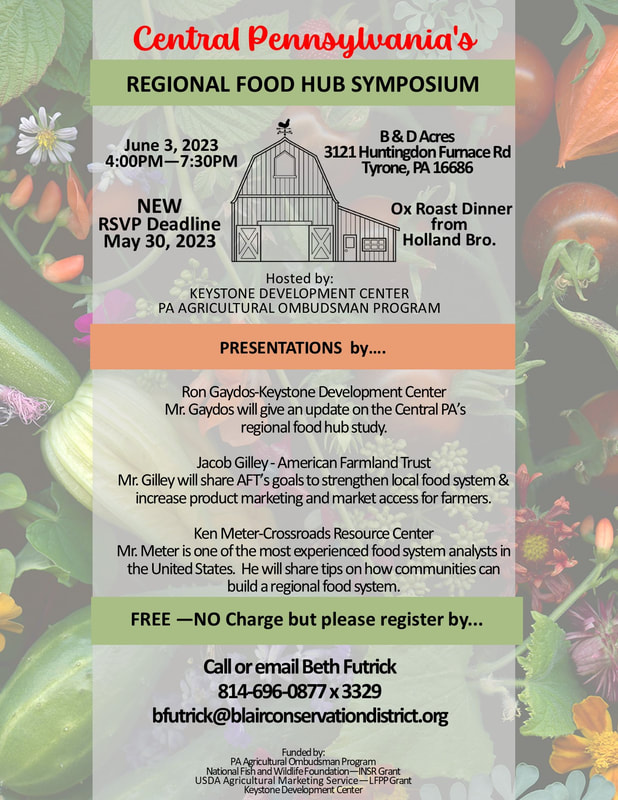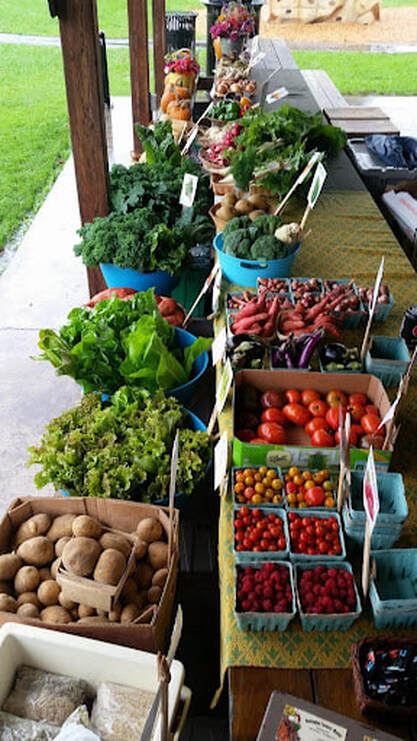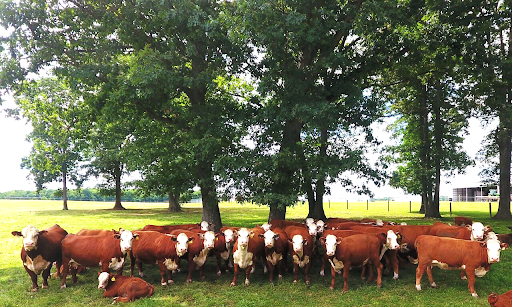We've heard from over 100 farmers, about 10 large food processors and distributors, and given numerous talks to residents, public officials, and stakeholders. Now we're working on a report with our recommendations.
If you are a farmer and would still like to provide input, here is the Farmer Survey.
If you are a food business and haven't taken it yet, here is the Food Hub/Food Business Survey.
If you are a farmer and would still like to provide input, here is the Farmer Survey.
If you are a food business and haven't taken it yet, here is the Food Hub/Food Business Survey.
About the Project
The Keystone Development Center is assessing the feasibility of cooperative business ventures for a more robust local food system in the Southern Alleghenies region. Several partner organizations, regional farmers, and other businesses are working together with the KDC to find ways to build a more resilient food chain that will support regional farms and increase community members’ access to healthy, locally grown food.
The process will connect trusted community leaders, experienced farmers, and other collaborators with related expertise. Focus groups, research, and listening sessions will identify needs, gaps, and barriers, develop a shared vision, and identify solutions that will support a mid-tier value chain to strengthen the regional food system. Specific possibilities to explore are food hubs, value-added food products, and system integrations that can promise an increase in regional farmers’ economic opportunities by finding new and more profitable sales channels and developing economies of scale. Another common goal is to increase local food consumption for everyone in the region – especially in schools in food desert neighborhoods of Altoona – and seek vendor opportunities with institutional customers, restaurants, and distributors throughout the region.
The process will connect trusted community leaders, experienced farmers, and other collaborators with related expertise. Focus groups, research, and listening sessions will identify needs, gaps, and barriers, develop a shared vision, and identify solutions that will support a mid-tier value chain to strengthen the regional food system. Specific possibilities to explore are food hubs, value-added food products, and system integrations that can promise an increase in regional farmers’ economic opportunities by finding new and more profitable sales channels and developing economies of scale. Another common goal is to increase local food consumption for everyone in the region – especially in schools in food desert neighborhoods of Altoona – and seek vendor opportunities with institutional customers, restaurants, and distributors throughout the region.
Goals
|
Project Partners
|
Agriculture, Community, Conservation, Economic Development, and Planning
FUNDING PARTNER: USDA Agricultural Marketing Service, Local Foods Promotion Program
|
Farmers and Food Businesses
|
Technical Assistance for Feasibility Analysis & Business Development
The KDC is leading the technical analysis with the input and advice of a farmer and food industry advisory committee. The plan of work toward the project’s goals include:
- Organizational development and producer meetings: Farmer outreach, listening sessions, and cooperative education to explore ideas and opportunities to better serve farmers by marketing and distribution together via a food hub. Evaluate various business models, ownership, and administrative structures. Activities will include farmer production surveys, focus groups, and ongoing stakeholder steering committee engagement.
- Production development: Evaluate the production quantities, pricing, and delivery methods already in place for multiple local foods products including produce, dairy, eggs, poultry, meat, and value-added products.
- Market research and development: Evaluate the level of interest in direct market outlets; Farm to School, Community Supported Agriculture entities (CSA’s), Food Cooperatives, and high-end restaurants.
- Transportation assessment: Evaluation of delivery options from various farms to a food hub, and from the food hub to direct market outlets.
- Determine Infrastructure needs: Assess existing infrastructure options, evaluate gaps and needs, determine costs for rent, utilities, and upgrades, then provide recommendations.
- Legal/Regulatory requirements: Evaluation and certification of food safety handling and holding methods for both deliveries and at the customer end.
- Pricing evaluations: Evaluate measures to improve economics for growers, the direct market outlets, and consumers.
- Business model: Construct pro forma financials, a revenue model projected out for five years, and interactive financial models for various scenarios, and determine capital needs.
- Summarize Findings into a report: final recommendations, risk management plan, supported by regular meetings of the research team and findings from farmer participation.
- Pursue funding for implementation
The industry and infrastructure research, farmer and community engagement, solutions development, and feasibility analysis will be led by the KDC with the insights that only all of the local partners can add to the project.




